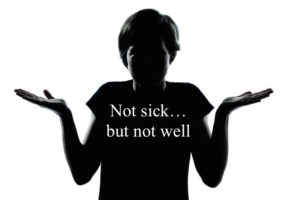“He felt well, so he didn’t follow up with his doctor.”
Our nephrology team was gathering history about a patient who had landed in the Emergency Department with advanced kidney failure and its consequences: confusion, severe anemia, metabolic acidosis, and a high blood potassium threatening to push him into cardiac arrest. We asked the family: Did he have any known kidney problems?
“His doctor mentioned abnormal kidney function 3 years ago. But he’s felt really healthy, and has been too busy to go back to the clinic.”
Convincing someone they have chronic kidney disease can be tough. “But I feel fine!” is a common response along with a look of disbelief or suspicion (like they’re not sure if I’m trying to sell them something). This is usually followed by: “What can I do to make my kidneys better?” This part is a real downer because they find out I actually don’t have anything to sell – there isn’t any therapy that can regenerate kidney function. It’s all about preventative measures to preserve the functioning nephrons – we focus on improving lifestyle practices and treating comorbidities so as to avoid further kidney injury.
World Kidney Day has been recognized on the 2nd Thursday of March every year since 2006 and tends to pass by with little fanfare. Public awareness and media coverage of kidney disease is relatively low compared to conditions such as heart disease or cancer. However, the statistics associated with chronic kidney disease are downright scary. Chronic kidney disease doubles the risk of mortality from cardiovascular events or infection. Every year, more Americans die from kidney disease than from breast cancer and prostate cancer combined. End-stage kidney failure requiring dialysis has an average survival of 10-15 years. If an individual transitioned to dialysis at the same time that he welcomed a baby to the family, he might not live to see his child graduate from high school.
 About 1 in 10 people worldwide, and >20 million in the US, have chronic kidney disease.
About 1 in 10 people worldwide, and >20 million in the US, have chronic kidney disease.
The functioning unit in the kidney is the nephron, and humans are born with 900,000 to 1 million nephrons per kidney (or less, if born premature). No new nephrons form after birth. We are actually born with more kidney function than we need to maintain electrolyte and fluid balance – evolutionary proof that the kidneys are so important!
In most cases of progressive kidney disease, the body is remarkably adept at adjusting to the buildup of toxins. The person “feels well” until the kidney function falls below 15% at which point the “crash” happens and they feel terrible.
Research is ongoing to develop saliva tests that quantify levels of toxins that have diffused from the blood, as a measure of kidney function. These are yet to be validated and commercialized. For now, periodic blood tests (inconvenient and painful, but necessary) are the only way we can reliably monitor chronic kidney disease to guide treatment recommendations.

Wei Ling Lau, MD is Assistant Professor in Nephrology at University of California-Irvine, where she studies vascular calcification and brain microbleeds in chronic kidney disease. She is currently funded by an AHA Innovative Research Grant, and has been a speaker for CardioRenal University and the American Society of Nephrology.